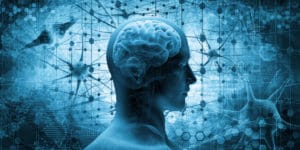Seizure Causes (Epilepsy, Generalized)
Included In This Lesson
Study Tools For Seizure Causes (Epilepsy, Generalized)
Outline
Overview
- Abrupt, abnormal, excessive, uncontrolled electrical activity in neurons of the brain
- Types
- Generalized – both hemispheres
- Tonic-clonic
- Stiffening (contraction)
- Jerking/Twitching
- Loss of Consciousness
- Absence
- Stare off into space
- Unaware of surroundings
- Last <30 seconds
- Tonic – Contraction/Tensing of muscles
- Clonic – Jerking/Twitching
- Myoclonic – sudden jerk of muscles
- Atonic
- All muscles suddenly go limp
- High fall risk
- Tonic-clonic
- Focal – Localized – one hemisphere
- Simple
- Twitching or sensory changes
- Patient remains conscious
- Complex
- Twitching or outbursts (laugh or cry)
- Patient loses consciousness/awareness
- Simple
- Generalized – both hemispheres
- Status epilepticus
- Persistent seizure activity
- No break between episodes
- Medical Emergency
Nursing Points
General
- Causes
- Genetics – Epilepsy
- Intracranial
- Head Trauma
- Brain Tumor
- Cerebral Bleeding
- Cerebral Edema
- Stroke
- Systemic
- Drug Toxicity
- Infection
- Acute Febrile State
- Hyper/Hyponatremia
- Thiamine (Vitamin B1) Deficiency
- Status Epilepticus
- Exacerbation
- Change in medication
- Acute illness/injury
Transcript
We discussed the various types of seizures in the module intro, so we want to review quickly what the possible causes are. The most important thing here is that you recognize that when someone HAS one of these conditions, they are at RISK for seizures and treat them appropriately.
Seizures or seizure disorders can be caused by nonmodifiable risk factors like genetics, age, family history, or prenatal injuries like hypoxia. We’ll also see conditions within the brain itself as well as within the rest of the body that can contribute to a patient’s risk for seizures. Let’s look at those conditions a little closer.
The reality is that any condition that affects the brain and the neurons can cause seizures. This includes things like head trauma like concussions or a car accident. Also things like brain tumors or bleeding on the brain, as well as any kind of swelling within the brain tissue. And then of course strokes can lead to short-circuits in the neurons that cause some to begin firing erratically.
Now, there are other conditions within the body that can contribute to a patient developing seizures. One of those is drug toxicity or withdrawal. We see this a lot with heroin or alcohol withdrawal. Also, infections like meningitis can irritate neurons and patients with high fevers are also at risk. I actually had a patient once who was an inmate at a Texas prison in the summer – he wasn’t allowed inside and his temperature got up to over 106 – they brought him in because he started having seizures. We also see seizures with thiamine deficiencies. And finally one of the big ones is alterations in sodium levels, both high and low. *click* Remember that the amount of sodium within the vessels can cause fluid to shift. If sodium is high, fluid shifts into the vessels and out of the cells, we see cellular dehydration. If sodium is low, fluid shifts out of the vessels and into the cells, causing them to swell. Both of those scenarios can cause the patient to have a seizure – so we try to regulate sodium levels to that very narrow 135-145 window.
Remember that Status Epilepticus is a state of persistent, nonstop seizure activity. When you think status I want you to think of an exacerbation. Something is going wrong that is making their seizure condition worse. It could be that they had a change in medication and it wasn’t therapeutic enough or even that they haven’t been taking it. Or it could be that they had some sort of acute injury or illness – either way, think exacerbation.
So to recap – seizures could be caused by nonmodifiable risk factors like age, family history, or genetics, but often times there’s some sort of condition going on that is causing the problem. It could be intracranial like a head injury, brain tumor, cerebral edema, or a stroke. Or, it could be a systemic condition like an infection, hyper or hyponatremia, or drug toxicity. Knowing these things can help us identify patients who are at risk. And again, remember that status epilepticus is like an exacerbation – something isn’t right – maybe because of a medication issue or some sort of illness or injury.
Keep working through the Seizure module to learn more about assessment, therapeutic management, and nursing care for patients with seizures. Happy nursing!
MedSurg | Neuro
The Neuro course will break down the most important things you need to know about the brain and nervous system! This is literally the command center for the whole body – so if anything goes wrong with the command center, all the other functions will be affected! We will walk you through how to assess the neuro system as well as how to identify and manage the most common and most important Neuro disorders. We take the overwhelm out of major diseases like Stroke and Seizures and help you understand how to keep these patients safe, no matter their condition.


